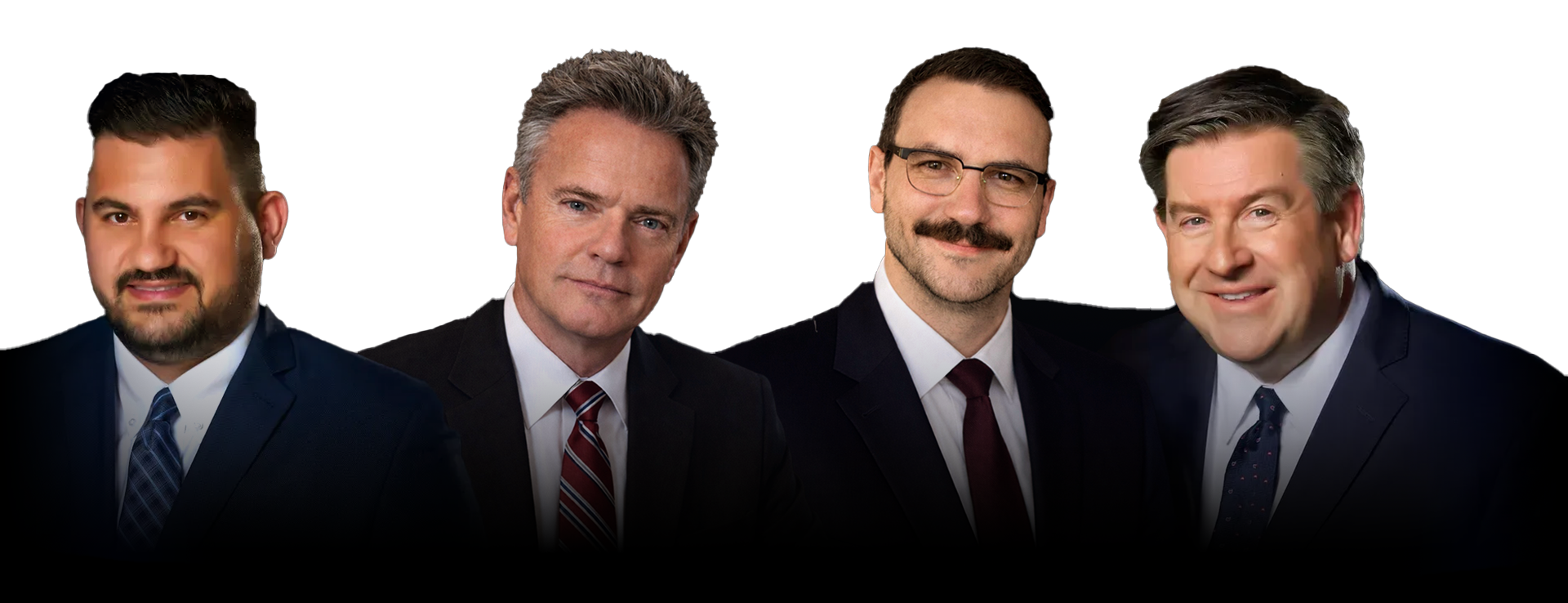YOUR FUTURE IS ALL THAT MATTERS

Drug Crimes Lawyer in Orlando, FL
Drug crimes are taken seriously by Florida law enforcement and are some of the most common criminal charges. An arrest for a drug crime in Orlando can lead to misdemeanor or felony charges, and penalties for these offenses can range from probation to serious prison time. If you have been investigated, arrested, or charged for drug-related crimes, you must hire an experienced criminal defense attorney to fight for your future.
The attorneys at Hanlon Law take every possible measure under the law to defend our clients. We use our expertise to provide sound legal counsel and support during this difficult time.
Drug Schedules
For charges and sentencing purposes, Florida classifies illegal drugs and controlled substances into five different schedules based on their medical value and the likelihood of abuse.
- Schedule I: These drugs have a high potential for abuse and no accepted medical use. This schedule includes heroin, LSD, ecstasy, marijuana, and peyote.
- Schedule II: These drugs have a high potential for abuse but some recognized medical use. This schedule uses Vicodin, cocaine, fentanyl, Demerol, Adderall, methadone, methamphetamines, oxycodone, and Dilaudid.
- Schedule III: The substances in this category have some medical use, a low or moderate physical dependence, and a high psychological dependence. This schedule includes Tylenol with codeine, ketamine, testosterone, and anabolic steroids.
- Schedule IV: Drugs that have an accepted medical use and their use may lead to limited psychological and physical dependence. Some example drugs are Xanax, Soma, Valium, Ambien, and Tramadol.
- Schedule V: These substances have an accepted medical use and limited risk of physical and psychological dependence. This schedule includes coughing preparations with less than 200 mg of codeine, Lomotil, Motofen, Parepectolin, and Lyrica.
Possession of a Controlled Substance
Florida Statute 893 defines possession of a controlled substance as the act of having an illegal drug in your possession. Under this statute, you can “possess” a controlled substance in two ways:
- Actual possession: You have been accused of having the controlled substance physically on your person, such as in your bag.
- Constructive possession: You have control over the substance, but it is not in your immediate possession. An example of constructive possession would be having a stash of marijuana in your glove box or a safe in your home.
The penalties for drug possession can vary widely. The severity of the charge depends on what substance you are accused of having, how much of the substance is, and whether you have prior drug convictions on your record.
First Degree Misdemeanor
Possessing less than 20 grams of cannabis or Schedule V drugs will be charged as first-degree misdemeanors. The penalty for this offense is one year in jail and up to $1,000 in fines.
Third-Degree Felonies
Schedule IV and Schedule III drugs will be charged as third-degree felonies. The penalties for these charges are five years in prison and a maximum of $5,000 in fines.
Second-Degree Felonies
Being in possession of chemicals that make meth, ecstasy, or GHB will be charged as a second-degree felony. The consequences of these charges are 15 years imprisonment and a fine of up to $10,000.
First-Degree Felonies
First-degree drug possession charges are the most severe of all the possession charges. This offense includes possessing more than 10 g of Schedule I and Schedule II drugs. The penalties for a conviction are 30 years in prison and a fine of up to $10,000.
Drug Trafficking
Florida Statute 893 defines drug trafficking as the intentional sale, manufacture, purchase, possession, transportation, or delivery of a certain amount of narcotics. The law defines the difference between drug sales and drug trafficking based on the quantity of drugs.
Here is a list of the threshold for possession categorized by drug:
- Marijuana- possession of at least 25 pounds of cannabis or 300 cannabis plants
- Fentanyl, hydrocodone, oxycodone, morphine, and opium- at least 4 grams
- Cocaine and phencyclidine- at least 28 grams
- Amphetamine- at least 14 grams
- Methaqualone- at least 200 grams
- Gamma- hydroxybutyric Acid (GHB)- at least 1 kilogram
- Lysergic Acid (LSD)- at least a gram
Drug trafficking is a first-degree felony, with more severe consequences than for sale or delivery. As the amount of each drug related to the charge increases, so does the potential mandatory minimum prison sentence.
Drug Manufacturing
Those who engage in any part of the manufacturing of illegal substances can be charged with drug manufacturing. These charges include possessing plants or raw materials found in the finished drugs. The penalties for drug manufacturing vary. The typical mandatory minimum for a drug manufacturing conviction is three years imprisonment and an expensive fine.
Hire an Orlando-Based Drug Crime Lawyer
Florida's legal system and the federal legal system work aggressively to prosecute drug crimes. The attorneys at Hanlon Law use all available resources to investigate your case, including the circumstances of your arrest, the prosecution's evidence, and any other relevant factors. We use our knowledge and insight of the Orlando and federal courts' prosecutors to combat the severe penalties that come with a drug crime conviction.
If you are facing Florida drug charges,
contact Hanlon Law to schedule a consultation to discuss your charges and hire an Orlando-based drug crimes defense attorney today.
Contact Us
Call Today






